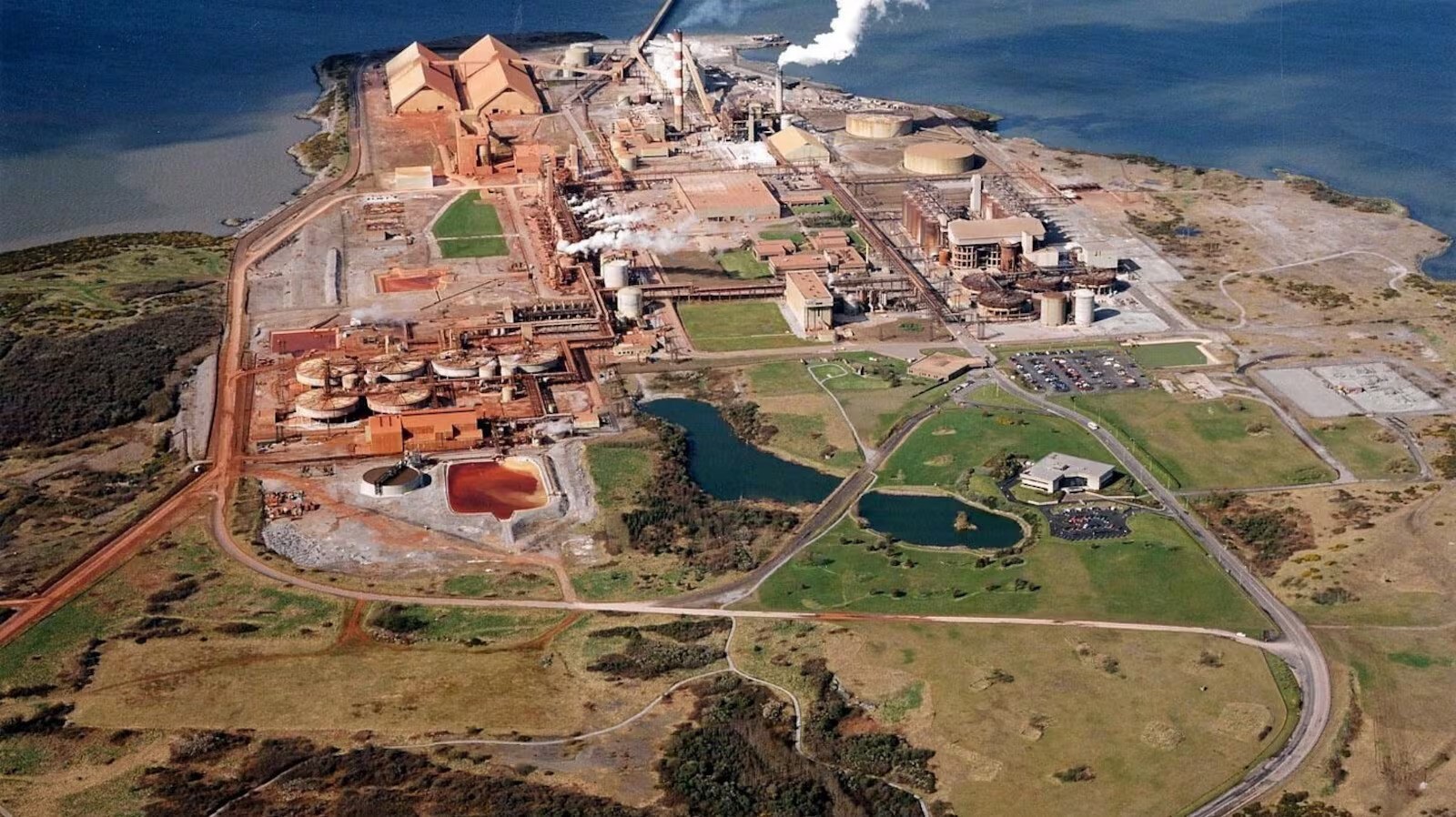您想继续阅读英文文章还
是切换到中文?
是切换到中文?

THINK ALUMINIUM THINK AL CIRCLE

The recent suspension of Aughinish Alumina from Ireland's ex-ante energy market on July 24, 2025, has brought to the fore the increasing dilemmas around geopolitical commitments and industrial continuity, even as the plant, Europe's largest alumina refinery, continues to operating, at least while its owner, the Russian Rusal, is becoming increasingly embroiled in the effect of sanctions arising out of Russia's invasion of Ukraine.

Enterprise Minister Peter Burke confirmed, “We’re working with the company, and that’s the key thing... We need to ensure that there is a pathway.”
Despite being disconnected from the energy trading platform, a spokesperson for Eirgrid clarified, “Aughinish Alumina have not been taken offline and remains connected to the transmission system. EirGrid can confirm that Aughinish Alumina have been suspended from the ex-ante market in line with a decision by ECC (European Commodity Clearing).” This distinction is crucial as the plant continues to draw power, but cannot participate in forward energy trading.
Global supply chain fractures: a legacy of Rio Tinto’s exit
One of the more significant challenges for Aughinish is sourcing raw materials. In March 2022, Rio Tinto stopped supplying bauxite to the Limerick-based refinery. Disruption to the flow of trade, normally on a barter-like arrangement via Guinea and Brazil, as then in the trade loop, caused a break: bauxite for alumina. The partnership had seen geopolitical tensions develop from a very great increase in global bauxite production for 3 years, and it was ultimately these tensions that ended the partnership. The outcomes are a concern over raw material security and long-term viability.
Also read: Inside the upstream aluminium shift: Bauxite, alumina and primary aluminium in 2025
Sanctions, ownership and economic fallout
Oleg Deripaska's shadow, the co-founder of RUSAL and a sanctioned oligarch with recognised connections to the Kremlin, has a far-reaching shadow. Deripaska was sanctioned by the US in 2018 and the UK in 2022. The Irish government says Aughinish has no link to military operations; however, its chain of ownership poses problems for EU compliance. “Obviously, there are sanctions that we have to adhere to in relation to the ownership structure,” Burke added.
Local business stakeholders are already bracing for impact. Ship chandler Vincent Kelly, who has supplied vessels at the Aughinish jetty for decades, warned: “There’re two ships in Aughinish every day, so it would mean that 70 per cent of our ship business would be gone.”
Environmental scrutiny and red mud dilemma
The environmental impact of the refinery further complicates the picture. An application to expand red mud ponds on the Shannon estuary is pending and has raised alarm bells with the Cappagh Farmers Support Group (CFSG) and others within the environmental community. The end of Rusal's partnership with Rio Tinto could create more red mud. Rusal and Rio Tinto were once hoping that QAL and the University of Queensland could develop the treatment of red mud for soil.
Community at a crossroads
With 450 jobs on the line, local leaders are demanding a contingency plan. As Anluan Dunne of the Green Party rightly pointed out, “We have families who are dependent on this company… Are the workers going to receive some sort of wage subsidy so they can pay their mortgages?”
The Irish government insists on finding a pathway forward. But without resolution on energy market reintegration, supply logistics, and environmental compliance, the future of Aughinish Alumina remains precarious.
Also read: Rusal to cut 6% annual aluminium production due to alumina price surge and decreased domestic demand
Responses








